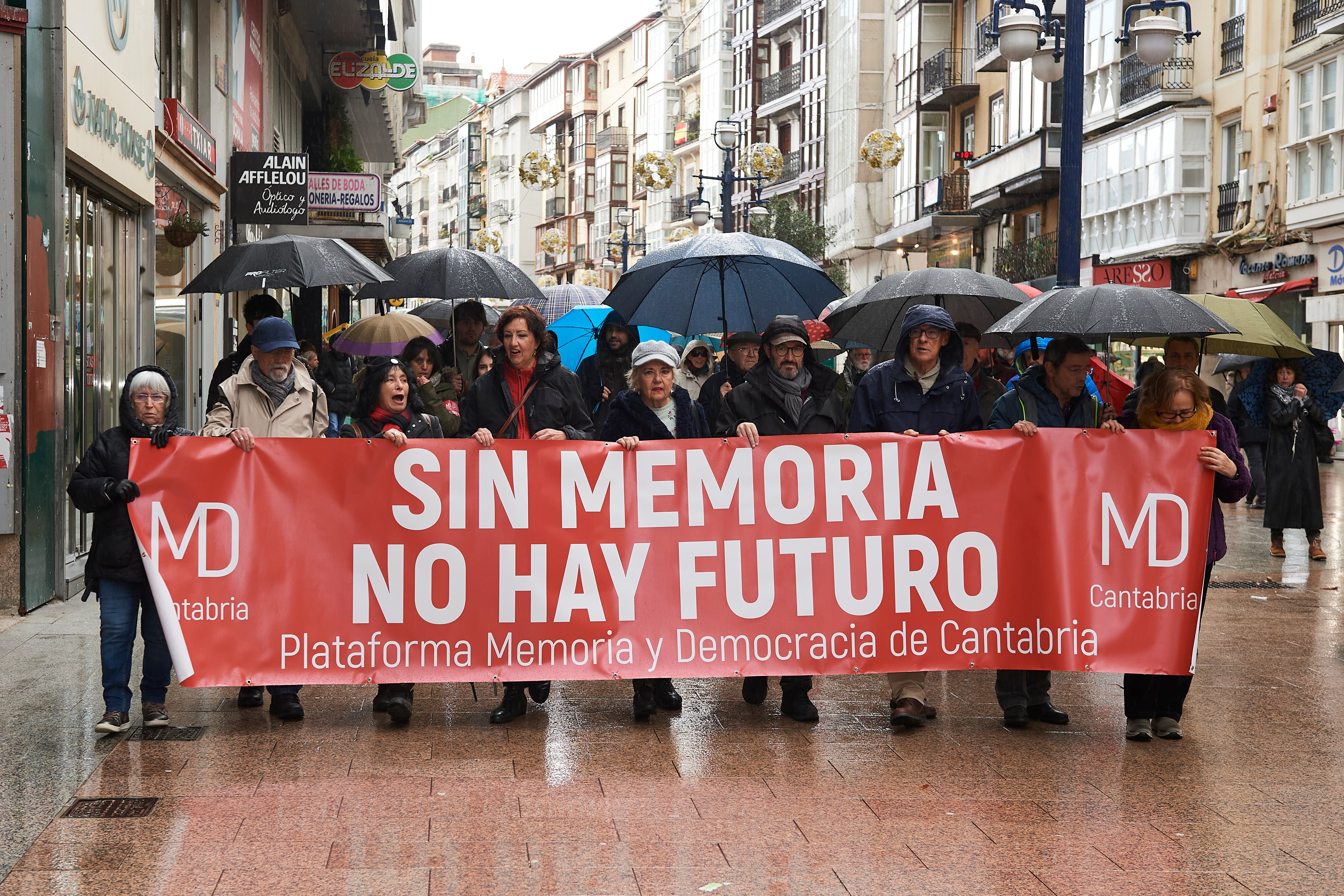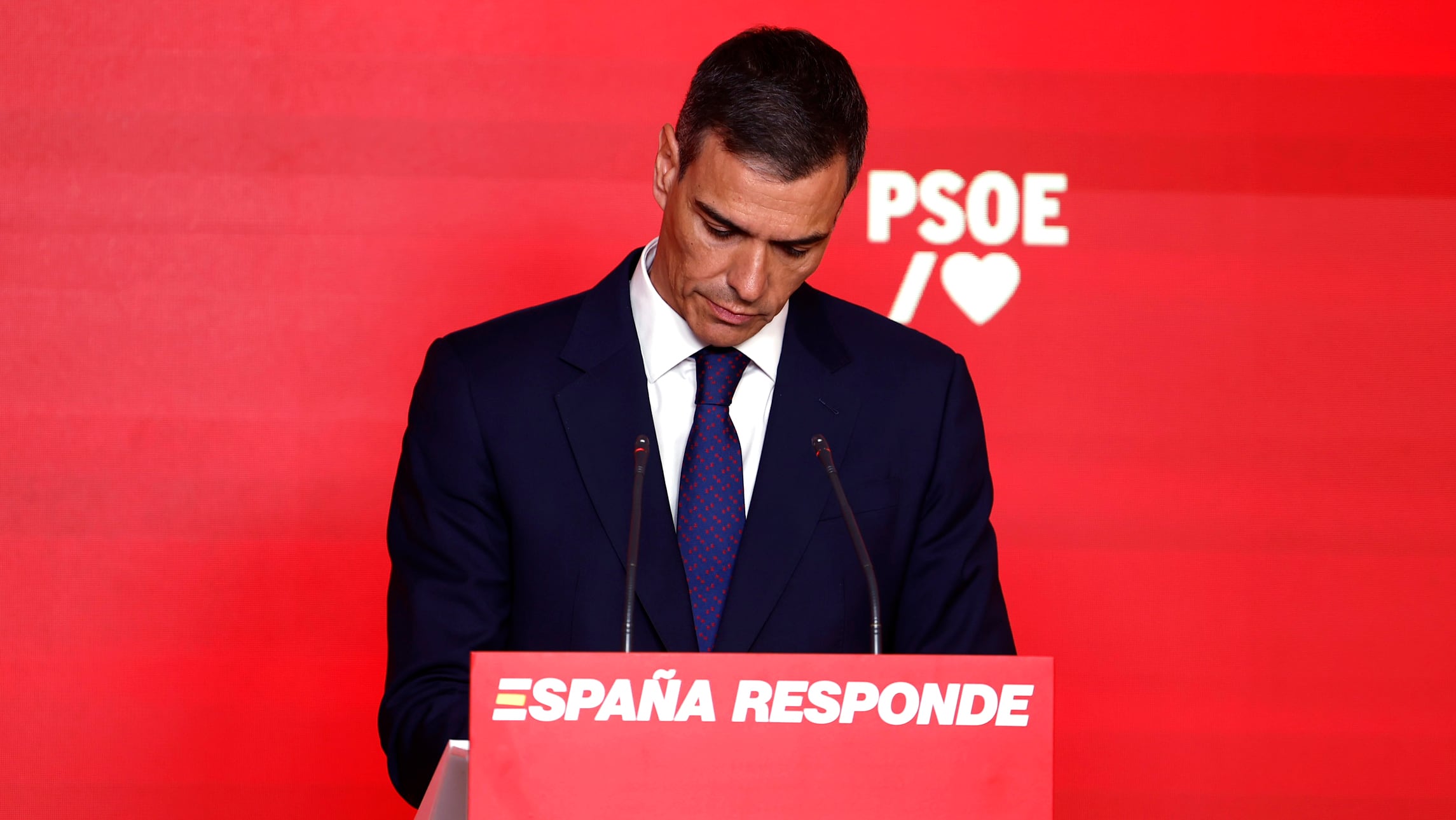A divided constitutional keeps the Memory Law of Cantabria, repealed by the PP and Vox | Spain

The Law of Historical and Democratic Memory of Cantabria, approved in 2021 and repealed two years later by the current Autonomic Government of the PP with the support of Voxremain in force by agreement adopted by the Plenary of the Constitutional Court by seven votes to five. It has been the magistrates of the conservative block of the court who have voted against. The decision has been made since the initial period of suspension of said repeal of the derogatory has been completed, which was appealed by the President of the Government In February. The appeal for unconstitutionality included the request that the full content of the new legislation of the Executive of Cantabria was annulled and that it was suspended until the guarantee organ decides on the bottom of the matter. After a first period of suspension, the Court has decided to extend its previous agreement, waiting to issue a sentence shortly.
The Law of Historical and Democratic Memory of Cantabria was approved by the former Executive of that Community in 2021. After the July 2023 elections, the new Cantabrian Government, chaired by María José Sáenz de Buruaga (PP) agreed to repeal said rule in 2024. The next step was taken from the presidency of the Government, which requested an opinion of the State Council, which reported in favor of the regular Drogatory of Cantabria. The Executive, in turn, included in his appeal the request for suspension of this new law, invoking article 161.2 of the Constitution, which forces the Court to agree.
In its full of this week, the court has decided – with the votes of its most progressive – Maintain the suspension of said lawas a precautionary measure. This means that the resolution is adopted « without assessing the background issues in controversy and outside the viability of the claims deduced in the resource. » The Constitutional has taken into account that « the eventual damages alleged by the president of the Government, in case of sustaining the suspension, have the necessary gravity and consistency to prevail on the presumption of legitimacy of the regional law. »
The Guarantees Organ underlines in this sense the importance of the « irreversible nature of the passage of time (…) and its transcendence for victims of serious human rights violations. » In this regard, the Government presented in its appeal that the new law of Cantabria « does not make a technical or aseptic repeal of the autonomous democratic memory legislation, but that it eliminates all the forecasts of the Autonomic Democratic Memory Law, completely repeals the legal statute of the victims, as well as the collaboration forecasts that allowed the effective application of the state law. » The challenge presented concluded that, “consequently, this derogation in block undermined compliance with Democratic Memory Law”, Which should continue to be applicable in the whole of Spain.
The appeal added that « in our right the duty of memory is clearly established in article 34 of the Democratic Memory Law, which is issued under the exclusive competence of the State for the regulation of the basic conditions that guarantee the equality of all Spaniards in the exercise of rights and in the fulfillment of constitutional duties. » This duty « affects all public administrations, as established in article 14 of the Democratic Memory Law, which uniquely collects the principles of collaboration and subsidiarity in relation to this law. »
The Derogation Standard of Cantabria exposes in its preamble that the Law of Historical and Democratic Memory of said Autonomous Community « was born dead » because those who promoted it – the regionalist party of Cantabria and the PSOE during the previous legislature – did not sought « the consensus or in the form or in the background » and « not even » admitted « the dialogue » around this legislation. The president of the community, Sáenz de Buruaga, said that « of a law that sought to repair the victims of political violence during the Second Republic, the Civil War and the dictatorship could have expected a certain degree of consensus that assumed, in effect, a real repair, but the law did not pretend the consensus or in the form or in the background, nor did it reach it in its process.
The magistrates who have voted against the maintenance of the suspension are Enrique Arnaldo, Concepción Espejel, César Tolosa, Ricardo Enriquez and José María Macías, members of the conservative block. All of them have announced a particular vote against to explain the reasons for their discrepancy.







